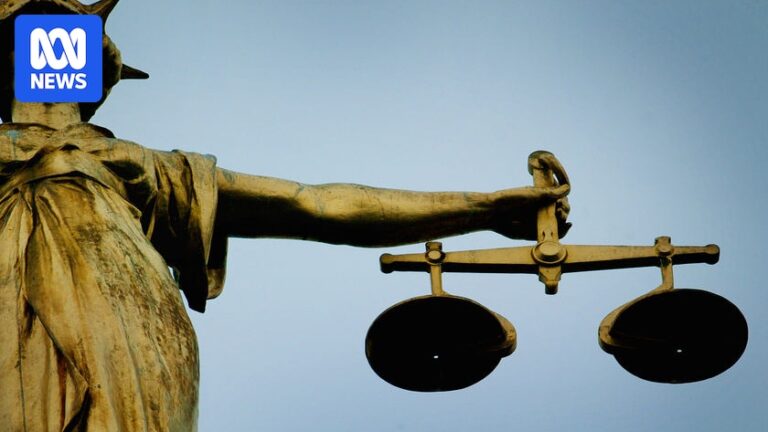Murray Bridge, South Australia — In the early morning hours of March 25, 2025, police responded to an unusual call from a local church. Security footage had captured a man entering the building around 3:30 a.m. Authorities soon arrested a 25-year-old man who was found with a sacred book believed to belong to the church.
But what truly caught national attention was the charge that followed: sacrilege—a seldom-used offense in Australian law with roots in ancient Christian tradition. In South Australia, it carries the same maximum penalty as murder: life in prison.
The charge, applied so rarely that many Australians were unaware it still existed, has sparked both support and concern. Some praise the legal recognition of churches as sacred spaces, deserving of special protection. Others argue the law is outdated, reflecting an era when church and state were more tightly entwined.
What Is Sacrilege?
The word “sacrilege” carries theological weight, denoting an act that profanes or violates what has been set apart as holy. In biblical history, sacred space was fiercely guarded—whether the tabernacle in the wilderness or the temple in Jerusalem.
In legal terms, sacrilege once extended across Europe, especially in Christian Rome and medieval England, where desecrating a church was not just criminal—it was considered a moral offense against God and the crown.
“In the United Kingdom, the king and the church were historically seen as one,” explains Dr. David Plater, deputy director of the South Australian Law Reform Institute. “A crime committed in a church was seen as a crime against divine order and society itself.”
The law arrived in Australia with British colonists. While many such religiously oriented laws have faded into obscurity—or been repealed altogether—South Australia remains the only state with a clear, codified sacrilege statute.
The law reflects a time when Christian worship was central to public life. Today, in a country where Christianity is no longer the majority religion, the sacrilege charge stands out as a curious remnant of that legacy.
Medieval art depicts Jews who secrate Christian crafts as an act of sacrifice. In this case, you are the host of the Eucharist or Sacramental Wafer. (Creative Commons))
Where the Church Stands
For Christians in Australia, the sacrilege case invites both reflection and action.
First, it’s a moment to remember the holiness of the spaces we often take for granted—to recognize our sanctuaries as more than neutral venues, but as places consecrated for worship and healing.
Second, it’s a chance to engage with the wider legal and cultural debates around religious liberty. Should laws still reflect a Christian understanding of the sacred? Or should they be updated to reflect a post-Christian society?
And finally, it’s a time to model grace and wisdom.
Even as we defend the value of sacred space, we are reminded of the One who, when confronted with defilement, didn’t just condemn—He called for repentance and renewal. “Destroy this temple,” Jesus said, “and in three days I will raise it up.” (John 2:19)
In a world where laws change and culture shifts, the Church must bear faithful witness—upholding what is holy, advocating for justice, and pointing always to the hope found in Christ.
Australia’s sacrifice and blasphemy law refers only to the Christian faith. (UNSPLASH: Lennon Chen))
The Tension Between Sacred and Secular
The rare charge has prompted broader questions: How should a secular legal system treat sacred spaces? Should churches be legally distinguished from other buildings? And how can society uphold religious liberty while remaining inclusive of all beliefs?
Some legal experts are calling for reform, suggesting that current laws already address crimes like trespassing or theft, regardless of where they occur.
“There’s an argument that sacrilege laws are duplicative,” says Dr. Plater. “They layer additional punishment on top of existing criminal charges, simply because the location was a church or religious setting.”
But others believe the law serves an important symbolic and spiritual purpose.
“For many Australians, a church is not just a building,” says Dr. Renae Barker, a legal scholar at the University of Western Australia. “It’s a place of worship, community, prayer. To violate that space is to strike at something deeper than property.”
This echoes scriptural themes found throughout both Testaments—that holy ground is to be treated with reverence, whether it’s Moses removing his sandals before a burning bush, or Jesus cleansing the temple of corruption.
A Country in Transition
The case arrives at a time of deep cultural and spiritual transition in Australia. While churches continue to serve and disciple communities, census trends point to a steady rise in secularism. By 2026, Australians identifying as having “no religion” are expected to outnumber those identifying as Christian.
In this context, legal protections for churches can seem, to some, like a holdover from a previous era. Groups like the Rationalist Society of Australia have called for the abolition of sacrilege and blasphemy laws altogether.
“These laws are out of step with modern pluralism,” says Si Gladman, the Society’s executive director. “Crimes like theft or property damage should be prosecuted on their own terms, not amplified simply because they occurred in a religious setting.”
But for believers, the issue isn’t just legal—it’s spiritual.
“A church is more than brick and mortar,” says Rev. Peter Langley of Adelaide. “It’s a house of prayer. An attack on that space wounds the body of Christ in ways the legal system can’t always measure.”
Balancing Freedom and Protection
Australian law does protect religious freedom under both constitutional and international frameworks. Yet these protections are increasingly tested as cultural values shift.
Following the legalization of same-sex marriage in 2017, the government commissioned a major review of religious liberty. The resulting Ruddock Report recommended repealing outdated laws like blasphemy, but also called for new protections against religious discrimination.
Those recommendations formed the basis of the Morrison government’s 2021 Religious Discrimination Bill—legislation that ultimately stalled amid political and cultural pushback.
Meanwhile, some states have moved forward. New South Wales recently introduced stronger protections for religious communities, particularly in response to rising antisemitism and Islamophobia.
Dr. Barker believes such reforms strike a necessary balance.
“We may see some religious laws as old-fashioned,” she says. “But we’re also living in a time where violence against faith communities is real. We need thoughtful laws—not to privilege religion, but to protect people from harm.”
The Australian Rationalist Association believes that places of worship should not be treated specially by law. (Getty: Mascot))
However, it is not clear which of these laws is still in the book, as the way English law was absorbed into the Australian legal system.
Renae Barker, a senior lecturer specializing in law and religion at the University of Western Australia, says references to sacrifices in Australia’s law have been repeatedly rewritten over the centuries.
“Many states have crimes that vary in explaining that they interfere with religious services, interrupt religious services, or commit crimes against those who hold religious services,” she tells ABC Radio National’s Religion and Ethics Report.
Please ask more about this
“What really appeals about some of them is that they are clearly written at very different times.”
Currently, South Australia is the only state or territory that has received an explicit crime of sacrifice. Other states and territories may refer to crimes in historical customary law, but they are not enforced.
Bloody crimes were abolished at the federal level in 1995, but may still exist in customary law in some states and territories. However, the crime is generally considered outdated, as the last successful prosecutor was in 1871.
Dr. Platter says there are very occasional efforts to revive such crimes, as was done in the 1990s about the controversial art exhibition.
Some argue that laws like criminal trespassing are sufficient to protect religious spaces and communities. (Getty: digi_guru ))
“A strange legacy of the past”
The Australian Rationalist Association (RSA) has been speaking out for the abolition of both sacrifice and blasphemous asp crimes.
In 2024, he called on the Tasmanian government to abolish a “clearly outdated” profanity law.
In 2023, the organization wrote to South Australia Attorney General Kyam Maher, urging the government to remove the sacrifice law. After the latest accusations, he wrote to Maher again to raise concerns.
“Sacrifice and blasphemy laws have no place in modern Australia,” says executive director SI Gladman. “However, punishments distributed for crimes such as trespassing, property theft, or damage to property should not be significant just because such crimes took place in religious buildings or places of worship.”




